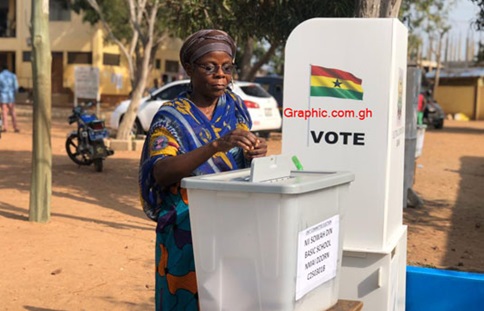
NRSA moves to check election year accidents
The National Road Safety Authority (NRSA) has designed its activities for the year to check speeding on the roads with a target to prevent the loss of lives through road crashes.
This has become imperative because per the authority’s analysis, deaths from road crashes increase during an election year. “When it comes to election year, the figures are not favourable, so we are targeting speed this year,” the Principal Manager in charge of the Planning and Programmes Directorate at the NRSA, Dennis Yeribu, said yesterday during an engagement with the leadership of the Ghana Motor Riders Association in Accra.
Records
Per the records of the NRSA, except for 2008, deaths from road crashes in election years have been on the rise since 2004, a year that saw an 88.6 per cent increase over the previous year’s (2003) recorded deaths.
In 2012, which was another election year, the country recorded 325 deaths from road crashes, up from the previous year’s (2011) 313 cases of people dying from road accidents. In 2016, another election year, the number of deaths increased from 323 in 2015 to 437, representing a 35 per cent increase.
Similarly, in the last election year in 2020, the country recorded 829 deaths from road crashes, representing an increase of 42 per cent from the previous year’s 581 cases.
Engagement
The engagement formed part of the Global Road Safety Week, a special campaign by the World Health Organisation to raise awareness of road safety. It was on the theme: “Operation Stay Alive”.
Mr Yeribu mentioned unsafe lane changes, car doors, lane splitting, aggressive riding, speeding and drunk riding as some of the major causes of road crashes. As a result of that, he said, the authority’s “Stay Alive” campaign, which was launched to improve road user behaviour, would focus on speeding this year.
He, therefore, urged motorbike riders to wear safety gear and control their speed, while advocating road safety in their various communities.
From the police’ perspective, the Director in charge of Research and Education at the Motor Traffic and Transport Department of the Ghana Police Service, Chief Superintendent Alexander Obeng, stressed the need to amend the Legislative Instrument (LI) that banned the use of motorcycles as taxis (okada).
He said amending it would allow the police and other authorities not only to regulate the activities of such motorbikes but to also help create employment opportunities to empower local communities.
“We cannot sit aloof as if we don’t know they use the motorbike for commercial purposes. Whether we like it or not, they’re using it, contrary to what the regulation says,” C/Supt Obeng said.
Helmets
The Director of Research, Monitoring and Evaluation of NRSA, Martin Owusu Afram, urged motorbike users to insist that persons, including politicians, who distribute motorbikes to them during the political seasons provide them with helmets.
Recognising the role of motorbike riders, he stressed the need to galvanise collective actions and accelerate progress towards the global goal of reducing road crashes and fatalities, and contributing to more sustainable road practices worldwide.
